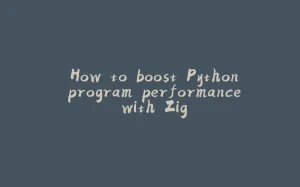Dp Learnings (27 Part Series)
1 House Robber leetcode problem
2 Jump game leetcode problem
… 23 more parts…
3 Jump game II leetcode problem
4 Cherry Pickup II Leetcode Problem
5 Partition Equals Subset Sum Leetcode problem or Subset sum equals to target
6 Maximum Sum Problem GeeksForGeeks
7 Count Palindrome Sub-Strings of a String GeeksForGeeks
8 Length of Longest Common Subsequence (LCS) and Longest common subsequence string leetcode
9 0/1 Knapsack Problem GeeksForGeeks both bounded and Unbounded
10 Shortest distance from source to all other nodes in a Directed Acyclic Graph
11 Coin change Leetcode
12 Coin Change 2 Leetcode
13 Target Sum or Partition with given difference Leetcode
14 Rod cutting Problem (similar to unbounded knapsack)
15 Length of longest common substring
16 Longest Palindromic subsequence (Same as Lcs)
17 Minimum Insertion steps needed to make a string palindrome (Same as LCS)
18 Minimum number of Insertion and deletion needed to convert String A to String B or make both the strings equal (same as lcs)
19 Shortest Common Super-sequence Leetcode (Same as Lcs string)
20 Distinct Subsequence Leetcode
21 Partition with given difference
22 Two best non overlapping events
23 Longest increasing subsequence
24 Edit distance
25 Maximum product subarray
26 Target sum
27 Maximum Multiplication Score
You are given weights and values of N items, put these items in a knapsack of capacity W to get the maximum total value in the knapsack. Note that we have only one quantity of each item.
In other words, given two integer arrays val[0..N-1] and wt[0..N-1] which represent values and weights associated with N items respectively. Also given an integer W which represents knapsack capacity, find out the maximum value subset of val[] such that sum of the weights of this subset is smaller than or equal to W. You cannot break an item, either pick the complete item or dont pick it (0-1 property).
Example 1:
Input:N = 3W = 4values[] = {1,2,3}weight[] = {4,5,1}Output: 3Input: N = 3 W = 4 values[] = {1,2,3} weight[] = {4,5,1} Output: 3Input: N = 3 W = 4 values[] = {1,2,3} weight[] = {4,5,1} Output: 3
Enter fullscreen mode Exit fullscreen mode
Solution:
<span>class</span> <span>Solution</span><span>{</span><span>//Function to return max value that can be put in knapsack of capacity W.</span><span>static</span> <span>int</span> <span>knapSack</span><span>(</span><span>int</span> <span>W</span><span>,</span> <span>int</span> <span>wt</span><span>[],</span> <span>int</span> <span>val</span><span>[],</span> <span>int</span> <span>n</span><span>)</span><span>{</span><span>// your code here </span><span>//This is similar to subset sum equals to target</span><span>// this can be solved using backtracking </span><span>//i.e taking value at an index, or not taking it</span><span>//lets optimize it with dp</span><span>int</span> <span>dp</span><span>[][]</span> <span>=</span> <span>new</span> <span>int</span><span>[</span><span>n</span><span>][</span><span>W</span><span>+</span><span>1</span><span>];</span><span>for</span><span>(</span><span>int</span> <span>row</span><span>[]:</span> <span>dp</span><span>){</span><span>Arrays</span><span>.</span><span>fill</span><span>(</span><span>row</span><span>,-</span><span>1</span><span>);</span><span>}</span><span>return</span> <span>solve</span><span>(</span><span>n</span><span>-</span><span>1</span><span>,</span><span>wt</span><span>,</span><span>val</span><span>,</span><span>W</span><span>,</span><span>dp</span><span>);</span> <span>// starting from the last index hence n-1;</span><span>}</span><span>public</span> <span>static</span> <span>int</span> <span>solve</span><span>(</span><span>int</span> <span>index</span><span>,</span> <span>int</span><span>[]</span> <span>w</span><span>,</span> <span>int</span> <span>[]</span> <span>val</span><span>,</span> <span>int</span> <span>target</span><span>,</span><span>int</span> <span>dp</span><span>[][]){</span><span>// base case</span><span>if</span><span>(</span><span>index</span><span>==</span><span>0</span><span>){</span><span>//we have reached the first index, and in order for the value to be accepted</span><span>//at this index, the weight of the value at i should be equal to target</span><span>if</span><span>(</span><span>w</span><span>[</span><span>index</span><span>]<=</span><span>target</span><span>)</span> <span>return</span> <span>val</span><span>[</span><span>index</span><span>];</span><span>return</span> <span>0</span><span>;</span><span>}</span><span>if</span><span>(</span><span>dp</span><span>[</span><span>index</span><span>][</span><span>target</span><span>]!=-</span><span>1</span><span>)</span> <span>return</span> <span>dp</span><span>[</span><span>index</span><span>][</span><span>target</span><span>];</span><span>int</span> <span>take</span> <span>=</span> <span>0</span><span>;</span><span>if</span><span>(</span><span>target</span><span>>=</span><span>w</span><span>[</span><span>index</span><span>]){</span><span>take</span> <span>=</span> <span>val</span><span>[</span><span>index</span><span>]+</span> <span>solve</span><span>(</span><span>index</span><span>-</span><span>1</span><span>,</span><span>w</span><span>,</span><span>val</span><span>,</span><span>target</span><span>-</span><span>w</span><span>[</span><span>index</span><span>],</span><span>dp</span><span>);</span><span>}</span><span>int</span> <span>dontTake</span> <span>=</span> <span>0</span><span>+</span> <span>solve</span><span>(</span><span>index</span><span>-</span><span>1</span><span>,</span><span>w</span><span>,</span><span>val</span><span>,</span><span>target</span><span>,</span><span>dp</span><span>);</span><span>return</span> <span>dp</span><span>[</span><span>index</span><span>][</span><span>target</span><span>]</span> <span>=</span> <span>Integer</span><span>.</span><span>max</span><span>(</span><span>take</span><span>,</span><span>dontTake</span><span>);</span><span>}</span><span>}</span><span>class</span> <span>Solution</span> <span>{</span> <span>//Function to return max value that can be put in knapsack of capacity W.</span> <span>static</span> <span>int</span> <span>knapSack</span><span>(</span><span>int</span> <span>W</span><span>,</span> <span>int</span> <span>wt</span><span>[],</span> <span>int</span> <span>val</span><span>[],</span> <span>int</span> <span>n</span><span>)</span> <span>{</span> <span>// your code here </span> <span>//This is similar to subset sum equals to target</span> <span>// this can be solved using backtracking </span> <span>//i.e taking value at an index, or not taking it</span> <span>//lets optimize it with dp</span> <span>int</span> <span>dp</span><span>[][]</span> <span>=</span> <span>new</span> <span>int</span><span>[</span><span>n</span><span>][</span><span>W</span><span>+</span><span>1</span><span>];</span> <span>for</span><span>(</span><span>int</span> <span>row</span><span>[]:</span> <span>dp</span><span>){</span> <span>Arrays</span><span>.</span><span>fill</span><span>(</span><span>row</span><span>,-</span><span>1</span><span>);</span> <span>}</span> <span>return</span> <span>solve</span><span>(</span><span>n</span><span>-</span><span>1</span><span>,</span><span>wt</span><span>,</span><span>val</span><span>,</span><span>W</span><span>,</span><span>dp</span><span>);</span> <span>// starting from the last index hence n-1;</span> <span>}</span> <span>public</span> <span>static</span> <span>int</span> <span>solve</span><span>(</span><span>int</span> <span>index</span><span>,</span> <span>int</span><span>[]</span> <span>w</span><span>,</span> <span>int</span> <span>[]</span> <span>val</span><span>,</span> <span>int</span> <span>target</span><span>,</span><span>int</span> <span>dp</span><span>[][]){</span> <span>// base case</span> <span>if</span><span>(</span><span>index</span><span>==</span><span>0</span><span>){</span> <span>//we have reached the first index, and in order for the value to be accepted</span> <span>//at this index, the weight of the value at i should be equal to target</span> <span>if</span><span>(</span><span>w</span><span>[</span><span>index</span><span>]<=</span><span>target</span><span>)</span> <span>return</span> <span>val</span><span>[</span><span>index</span><span>];</span> <span>return</span> <span>0</span><span>;</span> <span>}</span> <span>if</span><span>(</span><span>dp</span><span>[</span><span>index</span><span>][</span><span>target</span><span>]!=-</span><span>1</span><span>)</span> <span>return</span> <span>dp</span><span>[</span><span>index</span><span>][</span><span>target</span><span>];</span> <span>int</span> <span>take</span> <span>=</span> <span>0</span><span>;</span> <span>if</span><span>(</span><span>target</span><span>>=</span><span>w</span><span>[</span><span>index</span><span>]){</span> <span>take</span> <span>=</span> <span>val</span><span>[</span><span>index</span><span>]+</span> <span>solve</span><span>(</span><span>index</span><span>-</span><span>1</span><span>,</span><span>w</span><span>,</span><span>val</span><span>,</span><span>target</span><span>-</span><span>w</span><span>[</span><span>index</span><span>],</span><span>dp</span><span>);</span> <span>}</span> <span>int</span> <span>dontTake</span> <span>=</span> <span>0</span><span>+</span> <span>solve</span><span>(</span><span>index</span><span>-</span><span>1</span><span>,</span><span>w</span><span>,</span><span>val</span><span>,</span><span>target</span><span>,</span><span>dp</span><span>);</span> <span>return</span> <span>dp</span><span>[</span><span>index</span><span>][</span><span>target</span><span>]</span> <span>=</span> <span>Integer</span><span>.</span><span>max</span><span>(</span><span>take</span><span>,</span><span>dontTake</span><span>);</span> <span>}</span> <span>}</span>class Solution { //Function to return max value that can be put in knapsack of capacity W. static int knapSack(int W, int wt[], int val[], int n) { // your code here //This is similar to subset sum equals to target // this can be solved using backtracking //i.e taking value at an index, or not taking it //lets optimize it with dp int dp[][] = new int[n][W+1]; for(int row[]: dp){ Arrays.fill(row,-1); } return solve(n-1,wt,val,W,dp); // starting from the last index hence n-1; } public static int solve(int index, int[] w, int [] val, int target,int dp[][]){ // base case if(index==0){ //we have reached the first index, and in order for the value to be accepted //at this index, the weight of the value at i should be equal to target if(w[index]<=target) return val[index]; return 0; } if(dp[index][target]!=-1) return dp[index][target]; int take = 0; if(target>=w[index]){ take = val[index]+ solve(index-1,w,val,target-w[index],dp); } int dontTake = 0+ solve(index-1,w,val,target,dp); return dp[index][target] = Integer.max(take,dontTake); } }
Enter fullscreen mode Exit fullscreen mode
Removing stack space of O(n) ie for n times stack will be created in worst case
Using tabulation approach (top down dp)
<span>//tabulation appraoch : dp top down : tc O(n*W) space complexity : O(n*W) on stack space :)</span><span>class</span> <span>Solution</span><span>{</span><span>//Function to return max value that can be put in knapsack of capacity W.</span><span>static</span> <span>int</span> <span>knapSack</span><span>(</span><span>int</span> <span>W</span><span>,</span> <span>int</span> <span>wt</span><span>[],</span> <span>int</span> <span>val</span><span>[],</span> <span>int</span> <span>n</span><span>)</span><span>{</span><span>// your code here </span><span>//This is similar to subset sum equals to target</span><span>// this can be solved using backtracking </span><span>//i.e taking value at an index, or not taking it</span><span>//lets optimize it with dp</span><span>int</span> <span>dp</span><span>[][]</span> <span>=</span> <span>new</span> <span>int</span><span>[</span><span>n</span><span>][</span><span>W</span><span>+</span><span>1</span><span>];</span><span>for</span><span>(</span><span>int</span> <span>i</span> <span>=</span> <span>wt</span><span>[</span><span>0</span><span>];</span><span>i</span><span><=</span><span>W</span><span>;</span><span>i</span><span>++){</span><span>//it means that weight at index 0 should be less than or equals to </span><span>// target ie weigth W</span><span>//so every time when the weigth is less than or equals to target(W) strore val[0] in dp[0][i] ;</span><span>dp</span><span>[</span><span>0</span><span>][</span><span>i</span><span>]</span> <span>=</span> <span>val</span><span>[</span><span>0</span><span>];</span><span>}</span><span>for</span><span>(</span><span>int</span> <span>i</span> <span>=</span><span>1</span><span>;</span><span>i</span><span><</span><span>n</span><span>;</span><span>i</span><span>++){</span><span>for</span><span>(</span><span>int</span> <span>tar</span> <span>=</span> <span>0</span><span>;</span><span>tar</span><span><=</span><span>W</span><span>;</span><span>tar</span><span>++){</span><span>int</span> <span>take</span> <span>=</span><span>0</span><span>;</span><span>if</span><span>(</span><span>tar</span><span>>=</span><span>wt</span><span>[</span><span>i</span><span>]){</span><span>take</span> <span>=</span> <span>val</span><span>[</span><span>i</span><span>]+</span><span>dp</span><span>[</span><span>i</span><span>-</span><span>1</span><span>][</span><span>tar</span><span>-</span><span>wt</span><span>[</span><span>i</span><span>]];</span><span>}</span><span>int</span> <span>dontTake</span> <span>=</span> <span>0</span><span>+</span> <span>dp</span><span>[</span><span>i</span><span>-</span><span>1</span><span>][</span><span>tar</span><span>];</span><span>dp</span><span>[</span><span>i</span><span>][</span><span>tar</span><span>]</span> <span>=</span> <span>Integer</span><span>.</span><span>max</span><span>(</span><span>take</span><span>,</span><span>dontTake</span><span>);</span><span>}</span><span>}</span><span>return</span> <span>dp</span><span>[</span><span>n</span><span>-</span><span>1</span><span>][</span><span>W</span><span>];</span><span>}</span><span>//tabulation appraoch : dp top down : tc O(n*W) space complexity : O(n*W) on stack space :)</span> <span>class</span> <span>Solution</span> <span>{</span> <span>//Function to return max value that can be put in knapsack of capacity W.</span> <span>static</span> <span>int</span> <span>knapSack</span><span>(</span><span>int</span> <span>W</span><span>,</span> <span>int</span> <span>wt</span><span>[],</span> <span>int</span> <span>val</span><span>[],</span> <span>int</span> <span>n</span><span>)</span> <span>{</span> <span>// your code here </span> <span>//This is similar to subset sum equals to target</span> <span>// this can be solved using backtracking </span> <span>//i.e taking value at an index, or not taking it</span> <span>//lets optimize it with dp</span> <span>int</span> <span>dp</span><span>[][]</span> <span>=</span> <span>new</span> <span>int</span><span>[</span><span>n</span><span>][</span><span>W</span><span>+</span><span>1</span><span>];</span> <span>for</span><span>(</span><span>int</span> <span>i</span> <span>=</span> <span>wt</span><span>[</span><span>0</span><span>];</span><span>i</span><span><=</span><span>W</span><span>;</span><span>i</span><span>++){</span> <span>//it means that weight at index 0 should be less than or equals to </span> <span>// target ie weigth W</span> <span>//so every time when the weigth is less than or equals to target(W) strore val[0] in dp[0][i] ;</span> <span>dp</span><span>[</span><span>0</span><span>][</span><span>i</span><span>]</span> <span>=</span> <span>val</span><span>[</span><span>0</span><span>];</span> <span>}</span> <span>for</span><span>(</span><span>int</span> <span>i</span> <span>=</span><span>1</span><span>;</span><span>i</span><span><</span><span>n</span><span>;</span><span>i</span><span>++){</span> <span>for</span><span>(</span><span>int</span> <span>tar</span> <span>=</span> <span>0</span><span>;</span><span>tar</span><span><=</span><span>W</span><span>;</span><span>tar</span><span>++){</span> <span>int</span> <span>take</span> <span>=</span><span>0</span><span>;</span> <span>if</span><span>(</span><span>tar</span><span>>=</span><span>wt</span><span>[</span><span>i</span><span>]){</span> <span>take</span> <span>=</span> <span>val</span><span>[</span><span>i</span><span>]+</span><span>dp</span><span>[</span><span>i</span><span>-</span><span>1</span><span>][</span><span>tar</span><span>-</span><span>wt</span><span>[</span><span>i</span><span>]];</span> <span>}</span> <span>int</span> <span>dontTake</span> <span>=</span> <span>0</span><span>+</span> <span>dp</span><span>[</span><span>i</span><span>-</span><span>1</span><span>][</span><span>tar</span><span>];</span> <span>dp</span><span>[</span><span>i</span><span>][</span><span>tar</span><span>]</span> <span>=</span> <span>Integer</span><span>.</span><span>max</span><span>(</span><span>take</span><span>,</span><span>dontTake</span><span>);</span> <span>}</span> <span>}</span> <span>return</span> <span>dp</span><span>[</span><span>n</span><span>-</span><span>1</span><span>][</span><span>W</span><span>];</span> <span>}</span>//tabulation appraoch : dp top down : tc O(n*W) space complexity : O(n*W) on stack space :) class Solution { //Function to return max value that can be put in knapsack of capacity W. static int knapSack(int W, int wt[], int val[], int n) { // your code here //This is similar to subset sum equals to target // this can be solved using backtracking //i.e taking value at an index, or not taking it //lets optimize it with dp int dp[][] = new int[n][W+1]; for(int i = wt[0];i<=W;i++){ //it means that weight at index 0 should be less than or equals to // target ie weigth W //so every time when the weigth is less than or equals to target(W) strore val[0] in dp[0][i] ; dp[0][i] = val[0]; } for(int i =1;i<n;i++){ for(int tar = 0;tar<=W;tar++){ int take =0; if(tar>=wt[i]){ take = val[i]+dp[i-1][tar-wt[i]]; } int dontTake = 0+ dp[i-1][tar]; dp[i][tar] = Integer.max(take,dontTake); } } return dp[n-1][W]; }
Enter fullscreen mode Exit fullscreen mode
Unbounded 0/1 Knapsack
Note: Each item can be taken any number of times.
<span>class</span> <span>Solution</span><span>{</span><span>static</span> <span>int</span> <span>knapSack</span><span>(</span><span>int</span> <span>N</span><span>,</span> <span>int</span> <span>W</span><span>,</span> <span>int</span> <span>val</span><span>[],</span> <span>int</span> <span>wt</span><span>[])</span><span>{</span><span>int</span> <span>dp</span><span>[][]</span> <span>=</span> <span>new</span> <span>int</span><span>[</span><span>N</span><span>][</span><span>W</span><span>+</span><span>1</span><span>];</span><span>for</span><span>(</span><span>int</span> <span>row</span><span>[]:</span><span>dp</span><span>){</span><span>Arrays</span><span>.</span><span>fill</span><span>(</span><span>row</span><span>,-</span><span>1</span><span>);</span><span>}</span><span>return</span> <span>maxProfit</span><span>(</span><span>N</span><span>-</span><span>1</span><span>,</span><span>W</span><span>,</span><span>val</span><span>,</span><span>wt</span><span>,</span><span>dp</span><span>);</span><span>}</span><span>public</span> <span>static</span> <span>int</span> <span>maxProfit</span><span>(</span><span>int</span> <span>index</span><span>,</span> <span>int</span> <span>W</span><span>,</span><span>int</span> <span>[]</span> <span>val</span><span>,</span> <span>int</span> <span>w</span><span>[],</span><span>int</span> <span>dp</span><span>[][]){</span><span>if</span><span>(</span><span>index</span><span>==</span><span>0</span><span>){</span><span>//let say at index 0 val = 10 , w[index] = 3 and W =8 ,</span><span>// now we can consider index 0 twice ,as 3*2 =6<=8</span><span>///hence for twice 2*val = 2*10 = 20 , hence return 20;</span><span>//just convert the above logic in code;</span><span>return</span> <span>(</span><span>W</span><span>/</span><span>w</span><span>[</span><span>index</span><span>])*</span><span>val</span><span>[</span><span>index</span><span>];</span><span>}</span><span>if</span><span>(</span><span>dp</span><span>[</span><span>index</span><span>][</span><span>W</span><span>]!=-</span><span>1</span><span>)</span> <span>return</span> <span>dp</span><span>[</span><span>index</span><span>][</span><span>W</span><span>];</span><span>int</span> <span>take</span> <span>=</span><span>0</span><span>;</span><span>// taki</span><span>ng</span> <span>the</span> <span>same</span> <span>index</span><span>if</span><span>(</span><span>W</span><span>>=</span><span>w</span><span>[</span><span>index</span><span>]){</span><span>take</span> <span>=</span> <span>val</span><span>[</span><span>index</span><span>]</span> <span>+</span> <span>maxProfit</span><span>(</span><span>index</span><span>,</span><span>W</span><span>-</span><span>w</span><span>[</span><span>index</span><span>],</span><span>val</span><span>,</span><span>w</span><span>,</span><span>dp</span><span>);</span><span>}</span><span>int</span> <span>dontTake</span> <span>=</span> <span>0</span> <span>+</span> <span>maxProfit</span><span>(</span><span>index</span><span>-</span><span>1</span><span>,</span><span>W</span><span>,</span><span>val</span><span>,</span><span>w</span><span>,</span><span>dp</span><span>);</span><span>return</span> <span>dp</span><span>[</span><span>index</span><span>][</span><span>W</span><span>]</span> <span>=</span> <span>Integer</span><span>.</span><span>max</span><span>(</span><span>take</span><span>,</span><span>dontTake</span><span>);</span><span>}</span><span>}</span><span>class</span> <span>Solution</span><span>{</span> <span>static</span> <span>int</span> <span>knapSack</span><span>(</span><span>int</span> <span>N</span><span>,</span> <span>int</span> <span>W</span><span>,</span> <span>int</span> <span>val</span><span>[],</span> <span>int</span> <span>wt</span><span>[])</span> <span>{</span> <span>int</span> <span>dp</span><span>[][]</span> <span>=</span> <span>new</span> <span>int</span><span>[</span><span>N</span><span>][</span><span>W</span><span>+</span><span>1</span><span>];</span> <span>for</span><span>(</span><span>int</span> <span>row</span><span>[]:</span><span>dp</span><span>){</span> <span>Arrays</span><span>.</span><span>fill</span><span>(</span><span>row</span><span>,-</span><span>1</span><span>);</span> <span>}</span> <span>return</span> <span>maxProfit</span><span>(</span><span>N</span><span>-</span><span>1</span><span>,</span><span>W</span><span>,</span><span>val</span><span>,</span><span>wt</span><span>,</span><span>dp</span><span>);</span> <span>}</span> <span>public</span> <span>static</span> <span>int</span> <span>maxProfit</span><span>(</span><span>int</span> <span>index</span><span>,</span> <span>int</span> <span>W</span><span>,</span><span>int</span> <span>[]</span> <span>val</span><span>,</span> <span>int</span> <span>w</span><span>[],</span><span>int</span> <span>dp</span><span>[][]){</span> <span>if</span><span>(</span><span>index</span><span>==</span><span>0</span><span>){</span> <span>//let say at index 0 val = 10 , w[index] = 3 and W =8 ,</span> <span>// now we can consider index 0 twice ,as 3*2 =6<=8</span> <span>///hence for twice 2*val = 2*10 = 20 , hence return 20;</span> <span>//just convert the above logic in code;</span> <span>return</span> <span>(</span><span>W</span><span>/</span><span>w</span><span>[</span><span>index</span><span>])*</span><span>val</span><span>[</span><span>index</span><span>];</span> <span>}</span> <span>if</span><span>(</span><span>dp</span><span>[</span><span>index</span><span>][</span><span>W</span><span>]!=-</span><span>1</span><span>)</span> <span>return</span> <span>dp</span><span>[</span><span>index</span><span>][</span><span>W</span><span>];</span> <span>int</span> <span>take</span> <span>=</span><span>0</span><span>;</span><span>// taki</span> <span>ng</span> <span>the</span> <span>same</span> <span>index</span> <span>if</span><span>(</span><span>W</span><span>>=</span><span>w</span><span>[</span><span>index</span><span>]){</span> <span>take</span> <span>=</span> <span>val</span><span>[</span><span>index</span><span>]</span> <span>+</span> <span>maxProfit</span><span>(</span><span>index</span><span>,</span><span>W</span><span>-</span><span>w</span><span>[</span><span>index</span><span>],</span><span>val</span><span>,</span><span>w</span><span>,</span><span>dp</span><span>);</span> <span>}</span> <span>int</span> <span>dontTake</span> <span>=</span> <span>0</span> <span>+</span> <span>maxProfit</span><span>(</span><span>index</span><span>-</span><span>1</span><span>,</span><span>W</span><span>,</span><span>val</span><span>,</span><span>w</span><span>,</span><span>dp</span><span>);</span> <span>return</span> <span>dp</span><span>[</span><span>index</span><span>][</span><span>W</span><span>]</span> <span>=</span> <span>Integer</span><span>.</span><span>max</span><span>(</span><span>take</span><span>,</span><span>dontTake</span><span>);</span> <span>}</span> <span>}</span>class Solution{ static int knapSack(int N, int W, int val[], int wt[]) { int dp[][] = new int[N][W+1]; for(int row[]:dp){ Arrays.fill(row,-1); } return maxProfit(N-1,W,val,wt,dp); } public static int maxProfit(int index, int W,int [] val, int w[],int dp[][]){ if(index==0){ //let say at index 0 val = 10 , w[index] = 3 and W =8 , // now we can consider index 0 twice ,as 3*2 =6<=8 ///hence for twice 2*val = 2*10 = 20 , hence return 20; //just convert the above logic in code; return (W/w[index])*val[index]; } if(dp[index][W]!=-1) return dp[index][W]; int take =0;// taki ng the same index if(W>=w[index]){ take = val[index] + maxProfit(index,W-w[index],val,w,dp); } int dontTake = 0 + maxProfit(index-1,W,val,w,dp); return dp[index][W] = Integer.max(take,dontTake); } }
Enter fullscreen mode Exit fullscreen mode
Dp Learnings (27 Part Series)
1 House Robber leetcode problem
2 Jump game leetcode problem
… 23 more parts…
3 Jump game II leetcode problem
4 Cherry Pickup II Leetcode Problem
5 Partition Equals Subset Sum Leetcode problem or Subset sum equals to target
6 Maximum Sum Problem GeeksForGeeks
7 Count Palindrome Sub-Strings of a String GeeksForGeeks
8 Length of Longest Common Subsequence (LCS) and Longest common subsequence string leetcode
9 0/1 Knapsack Problem GeeksForGeeks both bounded and Unbounded
10 Shortest distance from source to all other nodes in a Directed Acyclic Graph
11 Coin change Leetcode
12 Coin Change 2 Leetcode
13 Target Sum or Partition with given difference Leetcode
14 Rod cutting Problem (similar to unbounded knapsack)
15 Length of longest common substring
16 Longest Palindromic subsequence (Same as Lcs)
17 Minimum Insertion steps needed to make a string palindrome (Same as LCS)
18 Minimum number of Insertion and deletion needed to convert String A to String B or make both the strings equal (same as lcs)
19 Shortest Common Super-sequence Leetcode (Same as Lcs string)
20 Distinct Subsequence Leetcode
21 Partition with given difference
22 Two best non overlapping events
23 Longest increasing subsequence
24 Edit distance
25 Maximum product subarray
26 Target sum
27 Maximum Multiplication Score
原文链接:0/1 Knapsack Problem GeeksForGeeks both bounded and Unbounded



























暂无评论内容